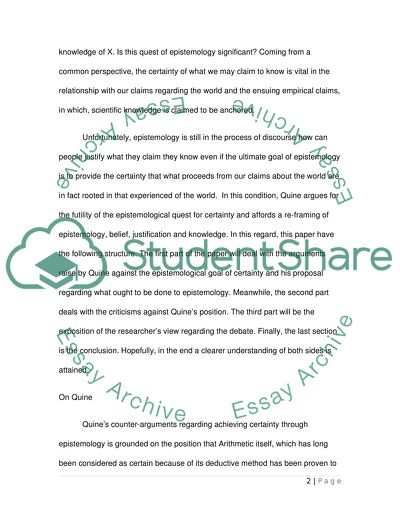Cite this document
(“Naturalized Epistemology Term Paper Example | Topics and Well Written Essays - 2500 words”, n.d.)
Retrieved from https://studentshare.org/philosophy/1392916-epistemology-naturalized-from-wvo-quine-s
Retrieved from https://studentshare.org/philosophy/1392916-epistemology-naturalized-from-wvo-quine-s
(Naturalized Epistemology Term Paper Example | Topics and Well Written Essays - 2500 Words)
https://studentshare.org/philosophy/1392916-epistemology-naturalized-from-wvo-quine-s.
https://studentshare.org/philosophy/1392916-epistemology-naturalized-from-wvo-quine-s.
“Naturalized Epistemology Term Paper Example | Topics and Well Written Essays - 2500 Words”, n.d. https://studentshare.org/philosophy/1392916-epistemology-naturalized-from-wvo-quine-s.


